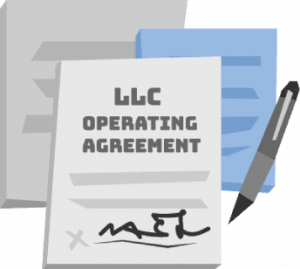How To Start An LLC In Michigan
When you form an LLC in Michigan, you’ll get personal asset protection, flexible management structure, and pass-through taxation. To start the process, you’ll need to file Articles of Organization with the Michigan Department of Licensing and Regulatory Affairs (LARA). You can file online, by mail, or in person. The total cost to file is $50. The state’s processing time for online filings is around two weeks. If you can’t wait two weeks for your LLC, you can pay extra for fast processing (from $50 for 24-hour service to $1,000 for one-hour service).
There are also several other steps you’ll need to take to fulfill requirements for strengthening your liability protection and protecting your privacy. Follow our guide to starting an LLC in Michigan, and your business will be ready to roll in no time.

1. Naming an LLC in Michigan
Every business needs a name. The name you choose must follow Michigan’s naming rules, and can’t already be in use by another Michigan business. Check here to see if the LLC name you want is available.
Overall your LLC name must:
- Include Limited Liability Company, Limited Company, LLC, or LC.
- Not include words or abbreviations to make it sound like the LLC is another kind of entity, like Corp. or Limited Partnership.
- Be unique among approved business names in Michigan.
Tip: If you’ve come up with the perfect name for your LLC but aren’t ready to pull the trigger, Michigan allows business name reservations for up to six months. You’ll need to file an Application for Reservation of Name with Michigan’s Corporations Division. It only costs $25 to reserve a name.

2. Registering a Michigan LLC Domain Name
Next up, you’ll want to secure a domain name for your website. Why are these important? Just like you need a street address to help people find you on a map, you need a domain name to help people find you on the web.
For domain names, it’s better to register earlier rather than later. There are two basic reasons why:
- Credibility: When you bother to establish a professional domain name, you’re letting customers know you take your work seriously.
- Consistency: A domain name that connects to your brand name makes it simpler for customers to remember you, which makes them more likely to seek you out.
At Northwest, we offer domain names in-house. You’ll even get a free year of domain name registration when you hire us to form your business.

3. Filing Articles of Organization for an LLC in Michigan
Now that your LLC has a Michigan-approved name and an official domain, it’s time to fill out and file your Articles of Organization. Registering your Articles with the state is what makes your LLC legal, and what gives your personal assets liability protection.
Note: Everything you list on your Articles of Organization will become part of the public record.
You’ll need to provide the following information about your LLC in order to successfully fill out the Articles:
Here’s where you’ll list the LLC name that you plan to register with Michigan’s Department of Licensing and Regulatory Affairs (LARA). You’ll need to include Limited Liability Company or an abbreviation like LLC in the name. The name you list here can’t be the same or similar to other LLC names in the state.
Note: If the name you want to use is federally trademarked, you could get sued if you use it. Perform a Trademark Clearance Search just to make sure no other business is using your LLC’s name nationally.
You can specify the purpose of your business (for example: to teach yoga), but this section is optional, and most LLCs skip it.
You can put an end date here if you intend for your LLC to close up shop in a few years, but most LLCs skip this optional section as well.
Michigan state law requires every LLC to have a Michigan registered agent (called a resident agent in this state). This can be you or someone you know—or you can hire a professional resident agent service like us. The important part is that your registered agent must have a local street address and agree to accept legal mail on behalf of your business.
You’ll need a resident agent before you start filling out your Michigan Articles of Organization. Your agent must:
- Keep regular business hours (9 AM to 5 PM) at a physical address (no P.O. Boxes) in Michigan.
- Accept legal mail and correspondence from the state.
You can serve as your own registered agent, but that means your address will be listed on state forms, which is a great way to make sure hackers, scammers, and junk mailers have your address.
This is the Michigan street address where your resident agent can be reached. This information becomes a permanent part of the public record. Hire Northwest, and our address will go here.
Here’s where you have the option of including additional information about your LLC, like whether it will be manager-managed or member-managed.
To delay your LLC’s formation for up to 90 days in the future, add a start date here.
Michigan needs your organizer’s name and signature. Your organizer is the person who completes, signs, and submits the LLC paperwork to the state. The organizer can be you, another member of the LLC, or a person outside of your LLC like your registered agent.
Hire us, and we’ll be your organizer and sign our name here.
The name and contact information of the person submitting the Articles.
Want to get your LLC fast? Expediting ranges from $50 for 24-hour service to $1,000 for one-hour service.
How to File Articles of Organization for an LLC in Michigan
Your Articles of Organization can be filed online, by mail, or in person. It costs $50 to file Michigan’s Articles of Organization. Online and in-person filings can take up to two weeks to be processed, and mailed filings can take a whole month.
Don’t feel like waiting? Pay $50 extra and you can have your LLC ready to go within 24 hours. Pay an extra $100 for same-day processing. If you have deep pockets and the patience of a toddler, you can get your corporation formed in two hours for $500, or even in one hour for $1,000.
Mail:
Michigan Department of Licensing and Regulatory Affairs
Corporations, Securities & Commercial Licensing Bureau
Corporations Division
P.O. Box 30054
Lansing, MI 48909
In Person:
Corporations Division
2501 Woodlake Circle
Okemos, MI
Maintaining Your LLC in Michigan

4. Write an LLC Operating Agreement for an LLC in Michigan
Like a lot of states, Michigan doesn’t legally require an operating agreement for LLCs. This doesn’t mean you shouldn’t write one. Your LLC’s operating agreement outlines the ins and outs of how you’ll hold meetings, the duties of members, how you’ll distribute profits (and losses), and other routine issues. The operating agreement can be tailored for the specific needs of the members.
Your operating agreement is an internal document, so you don’t need to file it with the state—but not taking the time to write one could come back to bite you.
Tip: Save on paying a lawyer, check out our free attorney-drafted operating agreement for an LLC in Michigan.

5. Get an EIN for Your Michigan LLC
Your Employer Identification Number, or EIN, is a nine-digit number assigned by the IRS and used for tax filing and reporting purposes. Basically, your EIN is like a Social Security number for your LLC. An EIN is usually required to open a business bank account. You can get an EIN for free from the IRS, or you can hire Northwest and we’ll get your EIN for you.

6. Get a Michigan LLC Bank Account
Now that your LLC is active in Michigan, your next step is opening a bank account for the business. Keeping your personal and business finances separated in distinct accounts helps bolster your LLC’s liability protections. Beyond that, having a business bank account makes it easier to accept and make payments, keep your accounting organized, and identify potential tax write-offs.
To open a bank account for your LLC in Michigan, you’ll need to bring the bank these documents:
- LLC Articles of Organization (a copy is fine)
- The LLC’s operating agreement
- The LLC’s EIN
- LLC Resolution to Open a Bank Account (for LLCs with multiple members)
If your LLC has more than one member, use our free LLC Resolution to Open a Bank Account template.

7. File State Reports for an LLC in Michigan
You’re almost ready to hit the ground running with your shiny new LLC, but you’ll still need to deal with some additional formalities. Michigan requires an Annual Statement (sometimes called an annual report). The fee for the statement is $25.
The Annual Statement is due by February 15th every year. LLCs formed after September 30th don’t have to file until the following year. This means that if you form your LLC in October of 2022, you won’t be required to file a statement until February 15th of 2024. Your LLC will be administratively dissolved if you don’t file an Annual Statement for two years.
Worried you’ll forget? Let us file your annual report for you.
Ready to Start an LLC in Michigan?








